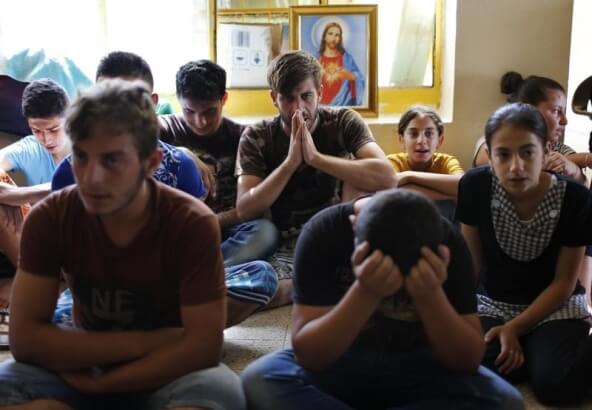Christians Fighting ISIS on Their Knees, Praying for God to Restore Their Land Desecrated by Jihadists

Their "weapons" are their prayers. Their biggest ally and protector? No less than God Himself.
These are the Christians in the Middle East who are fighting the war against the Islamic State (ISIS) terrorist group on their knees, praying for God to bless and restore the land the jihadists have taken over and defiled.
On Friday, Nov. 18, tens of thousands of persecuted Christians gathered in Erbil to pray for Iraq and victory against ISIS during an event called "Christ Day," CBN News reported.
Fabian Greche, the co-founder of the Mesopotamia House of Prayer in northern Iraq, said he believes God is far from finished with the Middle East.
"We easily get affected by darkness around us. It affects us, but if we look at Jesus and at His Word we see that God wants to pour out His Spirit. He's coming back for a Bride and He will have one in the Middle East," he said.
The prayer event in Erbil drew more than 20,000 Christians at a time of intense fighting in their country as Iraqi and coalition forces continued their siege of ISIS-occupied Mosul. Their prayers were broadcast throughout the Middle East by a Christian satellite network.
The six-hour prayer event marked the end of the participants' 50 days of fasting, with many of them expressing hope that they would soon be back in their land, living peaceful lives without ISIS.
Standing together in the shape of a cross, the participants released balloons with prayers in them "as a symbol of raising prayer on behalf of the whole nation," according to George Makeen, SAT-7 ARABIC's programming director.
Makeen noted that many areas in Iraq have already been liberated from ISIS. However, he expects those people who have suffered violence and been gripped by fear for the past two years will face many challenges before their normal lives are restored.
"My prayer is for God's peace and wisdom as they experience such difficult times," he told Christianity Today. "While Iraqis celebrate successes in defeating ISIS and liberation of their towns, the fear of violence committed by Shia militias, the fear of regional conflicts between key players (Turkey, Iran and Saudi Arabia), the conflicts between different religious and ethnic groups (Shia, Sunni, Arabs and Kurds), and the fears people will have as they consider returning to homes they were forced to leave: all of these limit the joy and hope people should be experiencing."
"The country still lacks the sense of true unity and belonging," he continued. "I pray that God will give leaders wisdom to help their people to feel that the current developments are the start of a better future."











